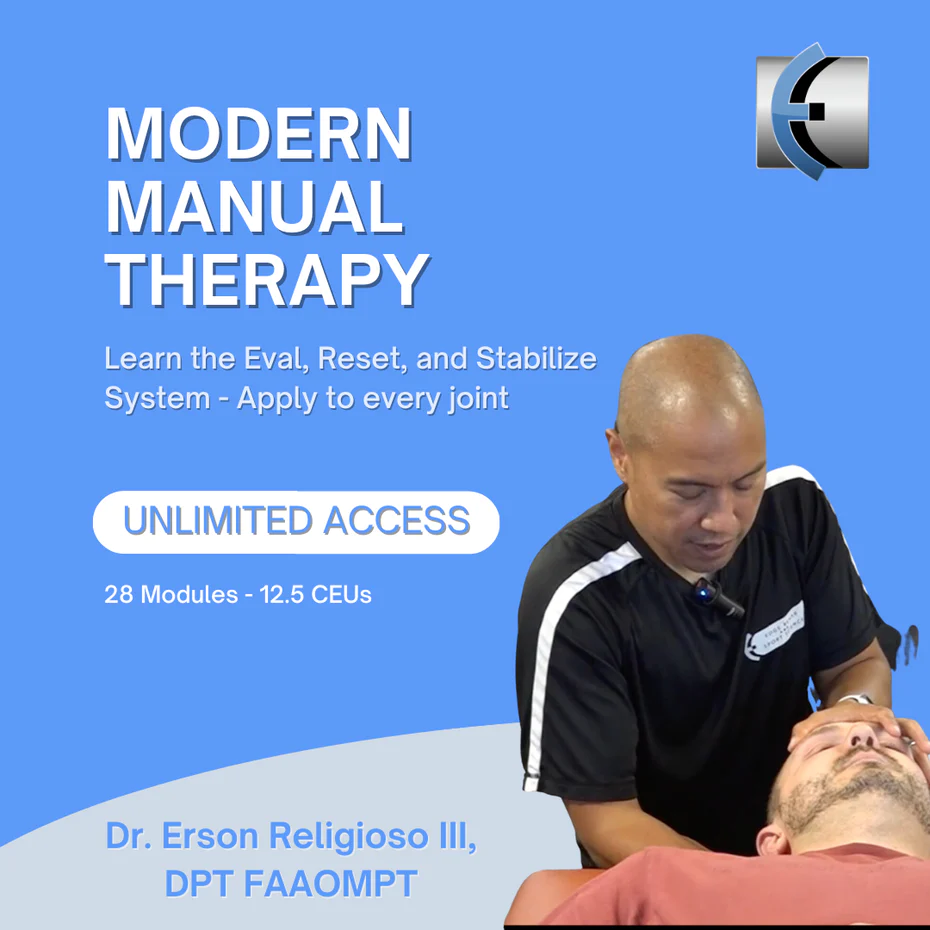We learn a great deal to call ourselves Therapists, and we have the loans to prove it. We have spent the last how many ever years coming into work, treating, documenting. Tirelessly repeating our tasks, with drive to improve our skills and our patients. For many, this is enough. Fulfilled by the gratitude of your patients. An endless road of potential for further education. A decent salary, what else could anyone want in this world from a job? For some special few, looking toward the horizon we strive for something new. New challenges, greater opportunity for change, and maybe even financial growth. For those Therapists who look out to the leadership possibilities for new career growth, and promotions, you have come to the right place. Today we will discuss some insights and tips on how you can leverage yourself into position for these new opportunities.
When it comes to the career ladder in Therapy, many of us don’t see many rungs for climbing. If you are in outpatient, maybe a clinic director, then possibly ownership. For those who work for facilities; Director of Rehab (DOR) or an Assistant DOR are typically your only options. Let’s be honest, there are only so many director jobs out there, and we can’t all be big internet sensations like Rocktherecovery.com. But one thing to keep in mind is there are a multitude of other options out there where your degree can provide you clinical advantage and perspective. So, keep your eyes open and do your research! Ok, let’s get to the good stuff!
Be Seen (for the right reasons)
First we need to start with the basics. Obviously, you’ll want to provide exemplary service to your patients, but more than that you’ll want to be seen by the staff around you. Be known as helpful, and if it can’t hurt to be seen as a mentor or source of knowledge. be the “go to” when people need advice. Somehow in facilities, everyone knows who that one Therapist is. The nurses will come to you, and word spreads. You are no longer just a Therapist, you are somewhat indispensable.
Being seen goes far beyond this though. One area for instance you can make yourself seen to leadership is in meetings. Engage in meetings in meaningful, positive and productive ways. Never have I seen an up-and-coming leader cower in the corner of meetings lips pursed, arms crossed. Try to chime in when you have something of value, and don’t force it, but be engaged, and seen. You will likely be going from 1 meeting a week to being double booked with meetings in the new career. So, it’s time to practice.

As important as being seen is, make sure it’s not for the wrong reasons. Do bosses sometimes inappropriately indulge in some gossip or office politics, sure but not good leaders. And this is a quick way to get yourself put at the bottom of the list when the job finally opens. Also, remember that much of your boss’s job is purely to ensure that you did your job. So, you can bet on it that if your boss is regularly “seeing you” on lists of those who have not gotten their work done, then you won’t be put on the lists you do want to be on. So, get organized and get your stuff done. Lastly, does it need to be said to make sure you are working ethically?
Develop your Leadership Identity
This might be somewhat foreign to those in healthcare but trust me. If you have ever sunk your big toe into LinkedIn then you know that there is a great deal to be said on this topic. It might seem cheesy but start developing your leadership brand, or identity. Trust me these buzzwords are flying all over the place when you land these roles, so get comfortable with them. Now however, you might be asking what does finding a leadership identity mean?
Consider what you like and dislike about your current and past bosses. Start asking yourself questions like: why did my boss decide to go that route? How could they have presented that more successfully. Read books on business or political leaders that you admire. Listen to podcasts or take leadership training classes. Start thinking about what type of leader you want to be. What core values does a greater leader have? What mission are you committing to serve? How will you stay true to yourself? Start scouring job sites for career options.
Once you’ve taken this inventory, put your identity into action. This means in the way you carry yourself at work. Portray yourself as a professional in the way you dress and present yourself. This means no more passive aggressive emails, or inappropriate jokes. It means finding a combination of strong emotional intelligence, social awareness, and professionalism. Time to take your new identity on the road. Time to network!
Networking
Finding yourself in the last paragraph is only as good as how many of the right people notice your new identity. A great host of people are looking for that job and it’s important to be noticed inside and outside of your company. You never know who and when you will catch the attention of the right person. You might not even know they are someone who could connect you to the job of your dreams when it happens. So always consider how you are presenting yourself.
Internal Networking
For those of you who work in a small mom and pop clinic the options can be limited. But you never know what idea you present to your boss could really make him look at you differently. Make sure however, you are reading the room at all times. Also, remember that impressing the right patient or family with your excellent clinical and professional skills could possibly land you a new opportunity.
Leadership Committees
For those of you who work in a larger corporation, networking can mean establishing interdepartmental relationships, and collaboration. A great way to network as well as find yourself an amazing amount of resumé building is getting onto committees or sign up for projects. Don’t necessarily worry about the fact that it might mean extra work for you. If you can handle it, then climb aboard the fast track to a new job train! Sitting on interdisciplinary committees or even those inside your department demonstrate your willingness to go above and beyond, provide your boss a first sight as to how you can handle yourself in meetings, and what ideas you bring to the table. If they don’t like what you are offering, I think that an interviewee would love to hear about your part in a large project or what your committee worked on etc.
External Networking
There is a world outside of work that is just ripe for the taking. One day my son was at basketball practice, and I was talking to an acquaintance who I knew worked in healthcare. I was discussing a new idea I had come up with and it got us to talking. A few months later he called me asking for my resume. You never know when and where it’ll happen, but you have to choose your luck and put yourself out there as someone who can do the job.

Networking can happen anywhere. Take that new identity you established and get on professional social media sites. Make a name for yourself in a professional, positive light. Get used to speaking out and providing feedback in a courteous way. You don’t have to have a blog site to do so, but this website has made or rekindled some amazing connections for me on LinkedIn, and Facebook (please click and connect with me, I’d love to hear your questions or stories!).
The spaces you live in already are likely already ripe for the picking with networking opportunities. Don’t force yourself onto people, but think about groups or activities you are already involved in. If you are for instance active in your religious group. Consider joining boards or committees in your out of work life as well. Don’t be afraid to leverage the relationships you have but remember to live up to the hype once you arrive on your first day.
97140 Cannot Be your Only Skills
Ok Sorry, just being funny for a second. The skills that you have honed over the last years of being a Therapist are honestly not going to get you very far in the leadership role you desire. We talked about soft skills now let’s talk about some preparation for hard skills that you’ll need. Of course this will vary depending on the job, but most leadership careers will require some strong computer skills. Having a great background in Excel, and PowerPoint will be key. There are ton of specific programs that can give you a leg up depending on what you are looking to do. Research them.
The World Beyond Medicare Reimbursement Rates
Also understand that the minimal view of healthcare that Therapist are provided is just the tip of the iceberg. If you want to strive toward a new career in leadership, it’s important to understand there is a world out there called: CMS guidelines, and DOH regulations. Depending on the job you are looking to jump into, these might come up. There is a lot to sift through. This is why we discuss mentors!
Mentorship
Finding a mentor to guide your path is going to be an amazing leap forward. Finding those in your field who want to educate and teach you, guide you is everything. Otherwise, it is very easy to get caught in the weeds, or not know where to start. I hope these tips are helpful for you in your search for a new career path.
So where does my Career path go from here?
Thanks for reading! There are lot of great opportunities out there for including coaching. A few coaches that you can often see on social media include:
Brandee Wilkins: Consultations (definingpointcc.com)
Kara Ronin Kara Ronin | LinkedIn
Follow us on social media for a wide variety or PT/OT/SLP topics.


